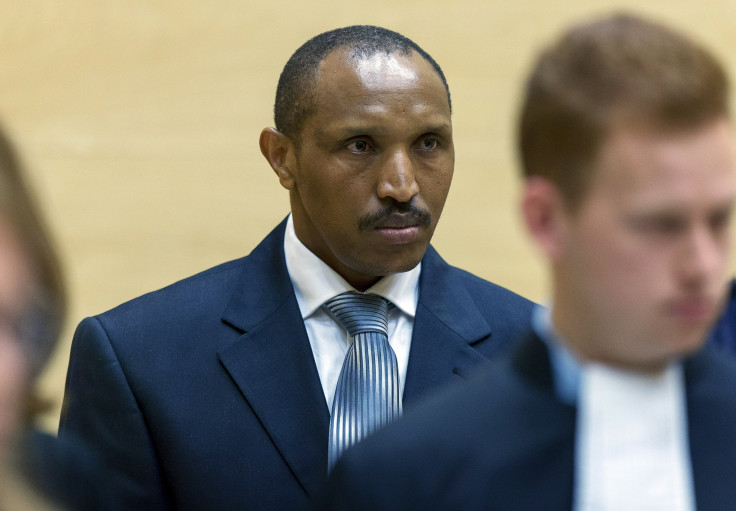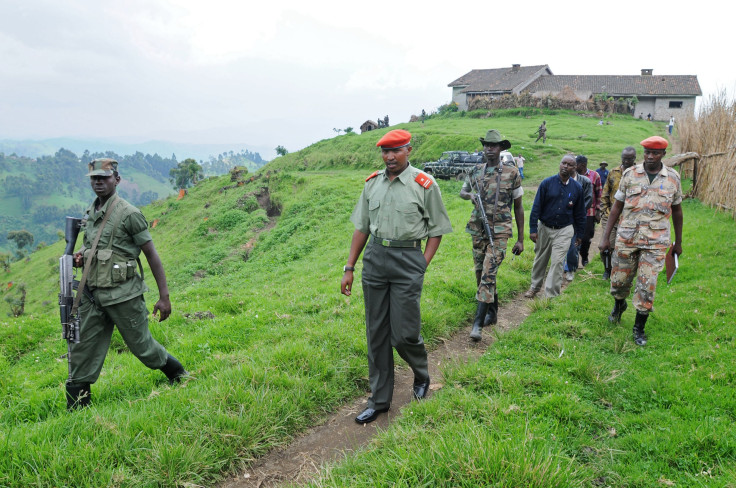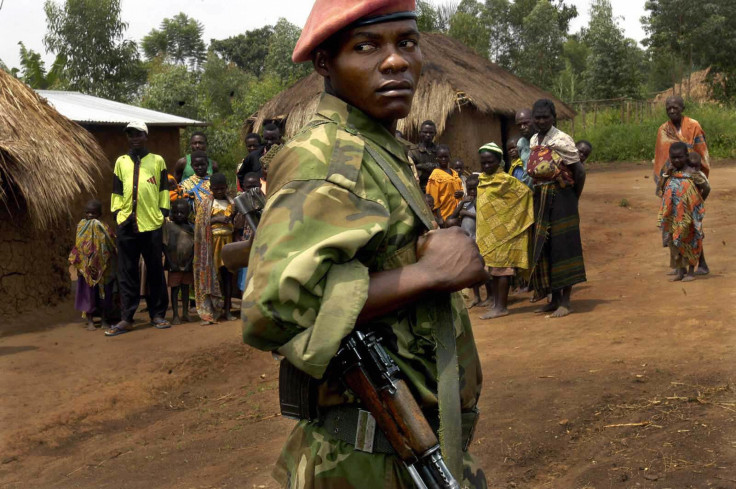Bosco Ntaganda 'The Terminator' Trial: Congo Warlord Tells ICC Judges He 'Never Attacked Civilians'

Congolese warlord Bosco Ntaganda, dubbed “The Terminator,” told judges Thursday at the International Criminal Court he never attacked civilians and tried to protect them from chaos during the power vacuum in Congo in the early 2000s. It was the first time Ntaganda, who faces 18 charges of war crimes and crimes against humanity before the Hague-based court, spoke publicly since he surrendered to the U.S. Embassy in Kigali, Rwanda, in 2013 after seven years on the run. It also was the first time his alleged victims heard the former militia leader defend himself, with the trial broadcast on radio in the Democratic Republic of Congo.
“I have been described as the Terminator, as an infamous killer, but that is not me,” Ntaganda said on the second day of his trial during a nine-minute speech to the court, the Guardian reported. “I have never attacked civilians ... I have always protected them.”
Ntaganda’s attorneys sought to portray the former rebel leader as a “professional soldier” who tried to save civilians from other militias. The defense lawyers told the court's judges they intend to paint a “completely different picture” of Ntaganda, who is accused of murdering, raping and persecuting innocent villagers and recruiting child soldiers in the northeastern Ituri region of Congo near the border with Uganda in 2002 and 2003.
"If I listen to the prosecution ... well ... he's really terrible, this Mr. Ntaganda," defense lawyer Stephane Bourgon told the judges Thursday, according to Agence France-Presse. "The reality of what happened in the field between 2002-03 is completely different.”

Many of the accusations against Ntaganda arose from legitimate military activities in the Ituri region, and the court also must consider the political and social context during a brutal conflict there, Bourgon said.
"Mr. Ntaganda is a professional soldier, he's not a politician and never has he been one," said Luc Boutin, who is assisting Bourgon in Ntaganda's defense, according to AFP.
The defense’s remarks were in stark contrast to the prosecution's allegations. On the first day of the trial, prosecutors accused Ntaganda of running a campaign of terror in the Ituri region and ordering the deaths of hundreds in brutal ethnic attacks. Prosecution attorneys showed judges gruesome images of bodies scattered across a banana plantation. The bodies were dumped in the fields after Ntaganda’s rebel Union of Congolese Patriots troops allegedly slaughtered them. The Union of Congolese Patriots, or UPC, was formed toward the end of the Second Congo War and was one of six rebel groups that emerged in the resource-rich Ituri region during the conflict there.
Ntaganda watched the proceedings impassively as an attorney for victims described how girls as young as 12 were raped and forced to serve as “wives” of senior commanders or provide sexual favors to soldiers in the Union of Congolese Patriots, Reuters reported.

Sarah Pellet, a lawyer representing 297 former child soldiers, told the three-judge panel that one 13-year-old said getting pregnant with the child of a senior official was a “relief” from having to be sexually available to fighters every day.
“They are victims of rape and sexual violence and some of them gave birth to other victims – children who will never know their fathers and who are a constant reminder of the reprehensible acts inflicted on their mothers,” Pellet said, according to AFP.
Ntaganda, 42, was born in Rwanda and raised in Congo. He fought for 15 years in wars that killed some 5 million people in the Democratic Republic of Congo over the past two decades. He launched his military career alongside Tutsi rebels who seized control of Rwanda in 1994, ending the genocide that claimed 800,000 lives, according to Reuters.
© Copyright IBTimes 2024. All rights reserved.











